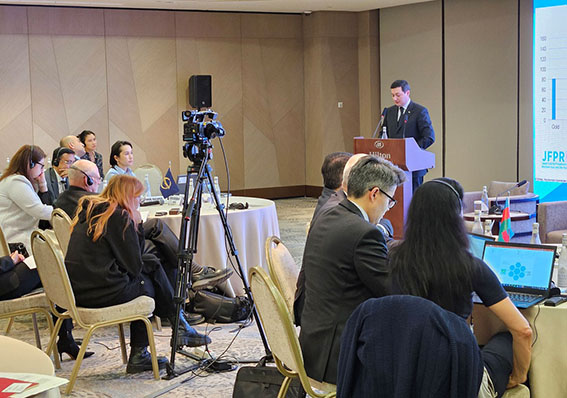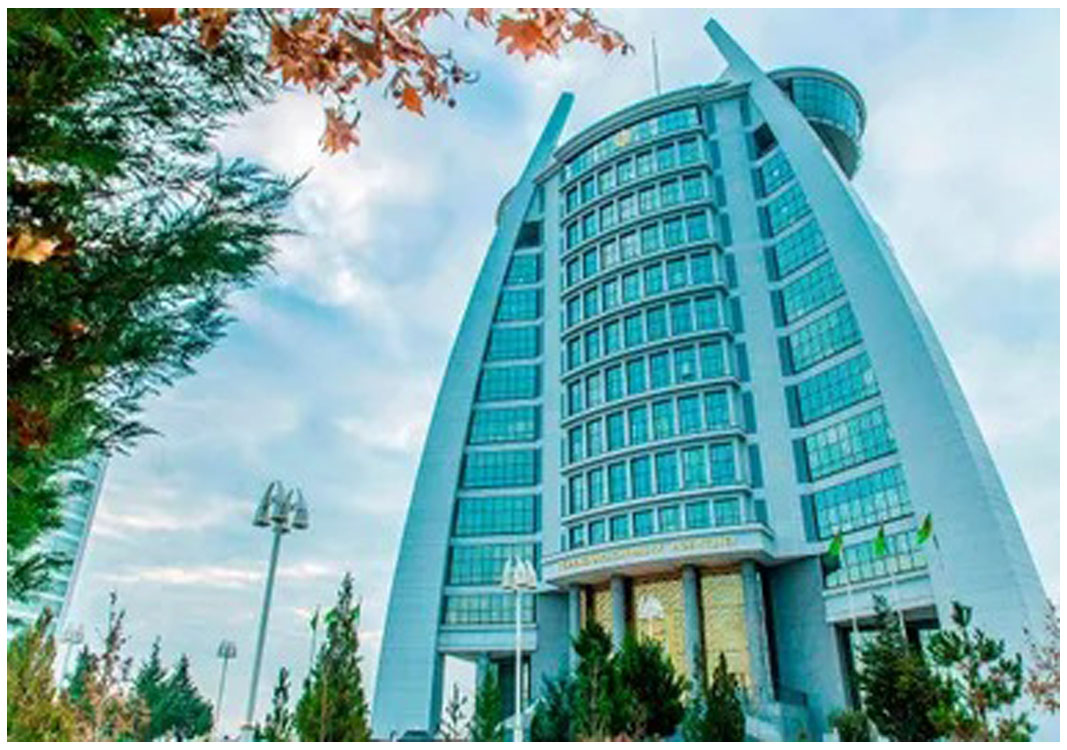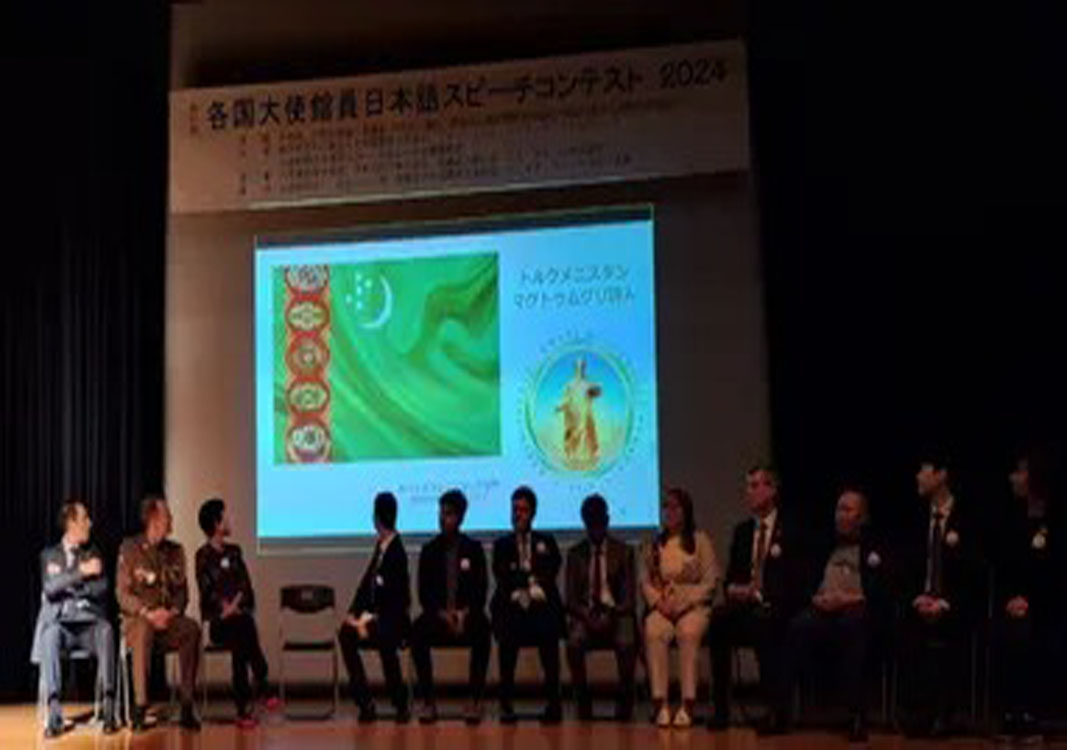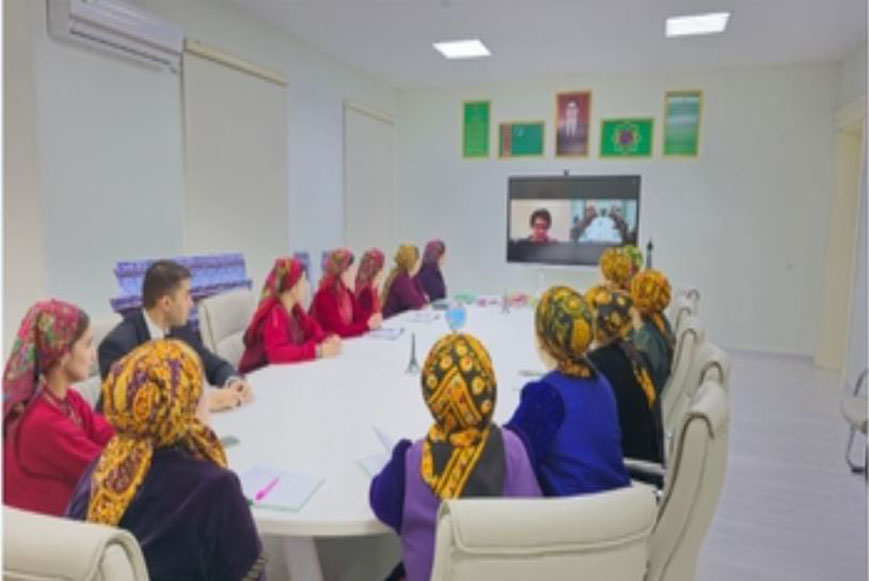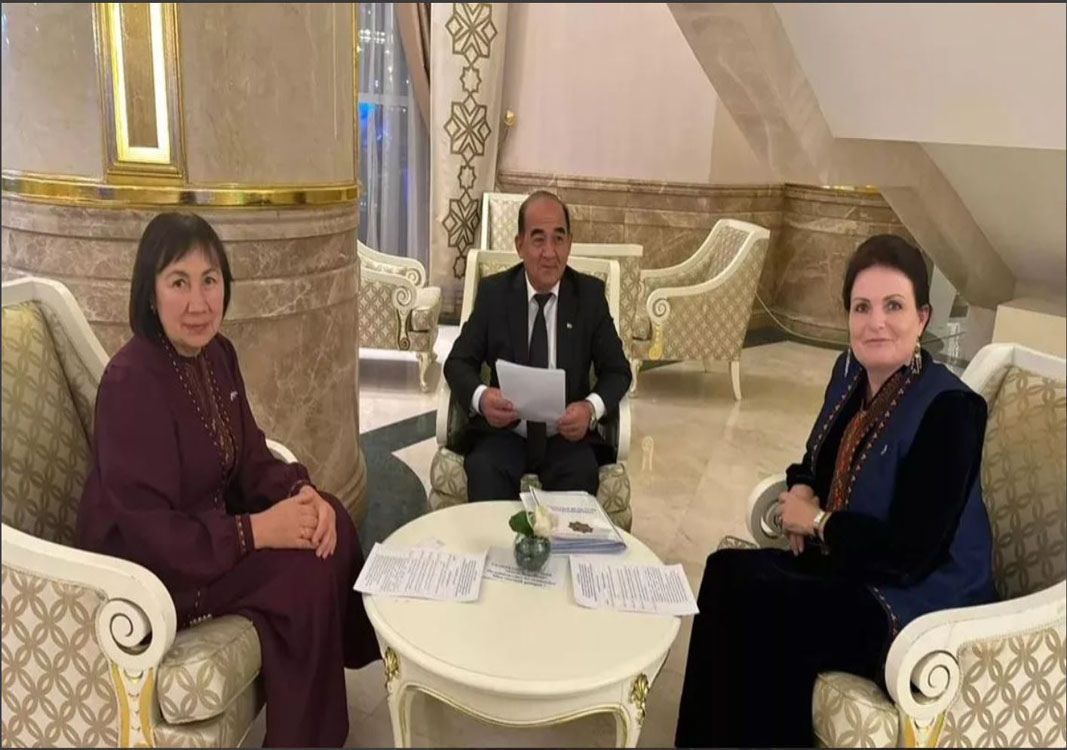Education leaders of the CAREC countries met in Tashkent to enhance cooperation
The first meeting of the CAREC Skills Development Working Group to Improve Regional Cooperation in Vocational and Higher Education was held in Tashkent from February 29 to March 1.
Turkmenistan was represented at this event by Deputy Minister of Education Azat Atayev, as well as Vice-rector for Scientific Work of the Turkmen Agricultural University named after S.A.Niyazov Shahymuhammet Shahyev. About 30 participants gathered for a two-day summit to discuss the challenges, opportunities and prospects for the development of vocational and higher education systems, as well as how regional cooperation can help prepare a more qualified workforce.
On the first day of the meeting, the main focus was on the harmonization of mechanisms used in the development of educational programs in accordance with the needs of the labor market, as well as on the development of the most effective methods in the preparation of national qualifications frameworks.
The topics of ensuring the quality of education, its continuity, and validation of non-formal education were also discussed. The world's best practices for strengthening regional cooperation in the field of skills development were presented by experts from the Asian Development Bank, the Japan International Cooperation Agency, and the leadership of the Association of European Universities.
In his speech, Deputy Minister of Education of Turkmenistan Azat Atayev, in particular, noted that the development of educational standards in the country is carried out in accordance with the International Standard Classification of Education, officially approved by the participating countries at the UNESCO General Conference. Education standards are also coordinated with the main stakeholders (employers and other stakeholders), the same applies to qualification requirements and curricula.
In 2021, Turkmenistan adopted a new version of the Law on Education and over the past 3 years has completely updated classifiers, educational standards, curricula, and qualification requirements for all levels of vocational education in accordance with modern requirements.
In November 2022, Turkmenistan joined the Convention on the Recognition of Qualifications Related to Higher Education in the European Region. This Convention is one of the documents of the European Council regulating the internationalization of universities. According to the provisions of the convention, in 2023 a national information center was established in the country, which joined the joint network of the Council of Europe and the European Commission ENIC (European Network of National Information Centers on Academic Mobility and Recognition) and NARIC (National Academic Recognition Information Centers).
In addition, in accordance with international standards, the accreditation system is developing in the country, the Procedure for implementing educational programs using electronic and remote technologies in educational institutions has been adopted, and work is underway to harmonize educational programs in related specialties and areas of training at various levels of professional education.
At the meeting of the CAREC Working Group, the successes of Turkmen universities on international rating platforms, reputable international subject Olympiads and scientific competitions, in the digitalization of education were presented.
The second day of the event was devoted to the issue of strengthening regional cooperation in the field of professional skills necessary for the development of agriculture taking into account climate change, water resources management and "green" skills in the CAREC region.
Topics such as the role of agricultural universities for effective water resources management and climate-oriented agriculture were discussed. Vice-rector for Scientific Work of the Turkmen Agricultural University named after S.A.Niyazov Shahymuhammet Shahyev, in particular, noted that today water-saving and energy-saving technologies are being introduced everywhere in the country, adaptation measures are being implemented to restore forests and improve land use to mitigate climate impacts.
The agricultural University is taking comprehensive measures to harmonize educational programs in order to form the necessary skills and knowledge in accordance with international conventions in the field of ecology. The University also conducts extensive educational activities, the task of which is to increase the potential, expand the horizons of knowledge of students and youth of Turkmenistan about changing climatic conditions both in the region and on the whole planet, and provide them with the necessary skills in adapting to the effects of climate challenges, reducing the risks of natural disasters and emergency preparedness.
The Ministry of Education of Turkmenistan, together with UNICEF, has developed a curriculum for adapting school subjects to climate change issues. It is integrated into primary and secondary education in Turkmenistan through the development and implementation of teaching aids for teachers supporting the introduction of interactive teaching and learning methods into the classroom environment.
The results of scientific and practical work on the adaptation of crops to climate change and the rational use of water resources were also presented.
After discussions, the organizers proposed to develop recommendations on mechanisms for the formation of educational standards in the areas of "Agriculture and agricultural sciences", taking into account the needs of the labor market, food security issues, water issues and climate change, "green" specifics, as well as the continuity of various levels of vocational education in related specialties.
The participants of the event got acquainted with international benchmarks used by think tanks and academia, including the Network of European Universities, the CAREC Institute, the Justus Liebig University in Giessen, the Wageningen Center for Development Innovation and JICA.
It was also noted that there is a need to identify potential areas of cooperation and promote regional mobility of the workforce, students, research and innovation.
Due to the common challenges of climate change and environmental sustainability in the region, the CAREC Network of Agricultural Universities can stimulate climate change research and be a source of knowledge on how to use advanced technologies and adapt them to local needs. This can contribute to the development of innovation and the development of advanced solutions.
CAREC: The Central Asian Regional Economic Cooperation Program is a partnership of 11 countries and development partners working together to promote development through cooperation leading to accelerated economic growth and poverty reduction. She is guided by a comprehensive vision of "Good neighbors, good partners and good prospects."

